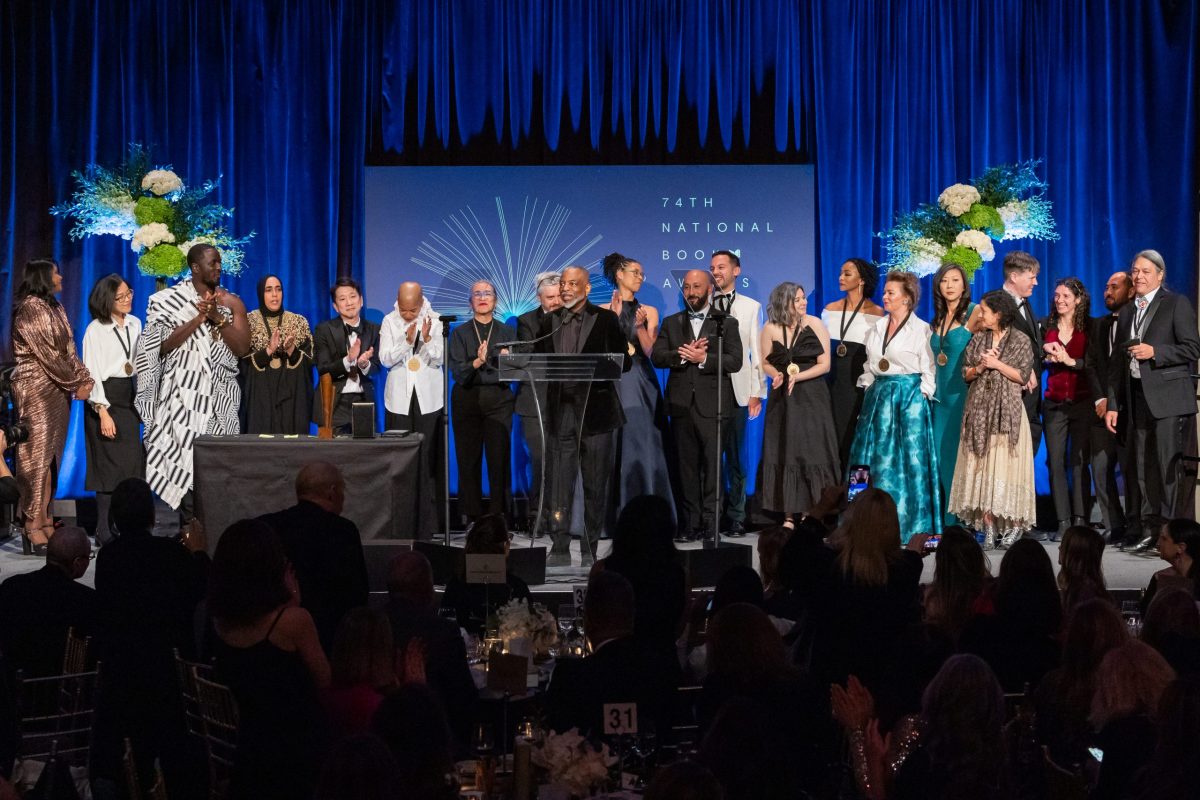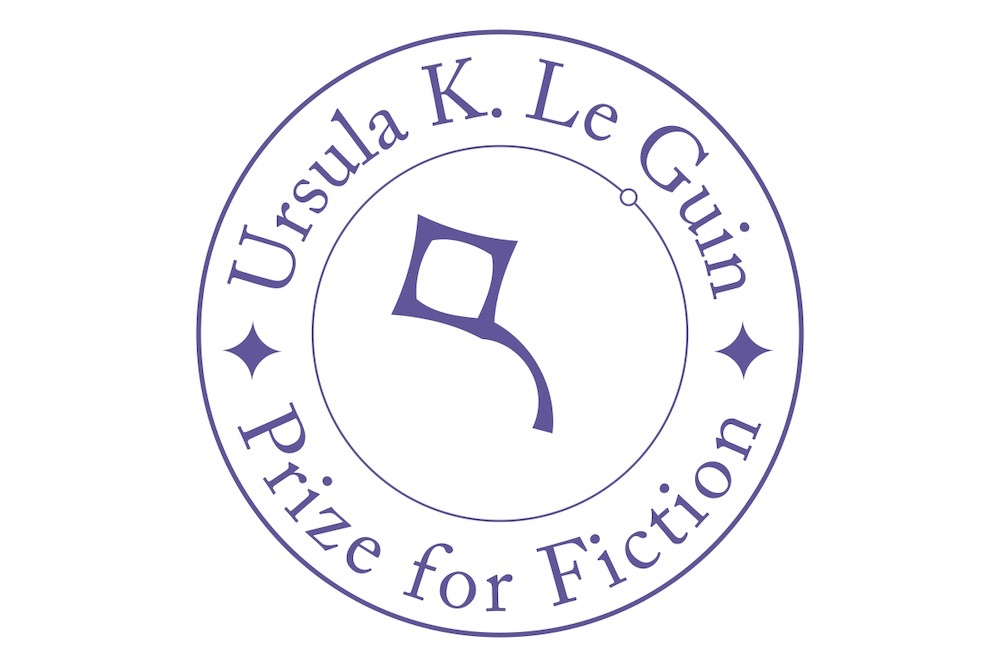Reading Lists
Predicting the 2017 Pulitzer Prize for Fiction
A look at this year’s contenders for American literature’s most prestigious prize
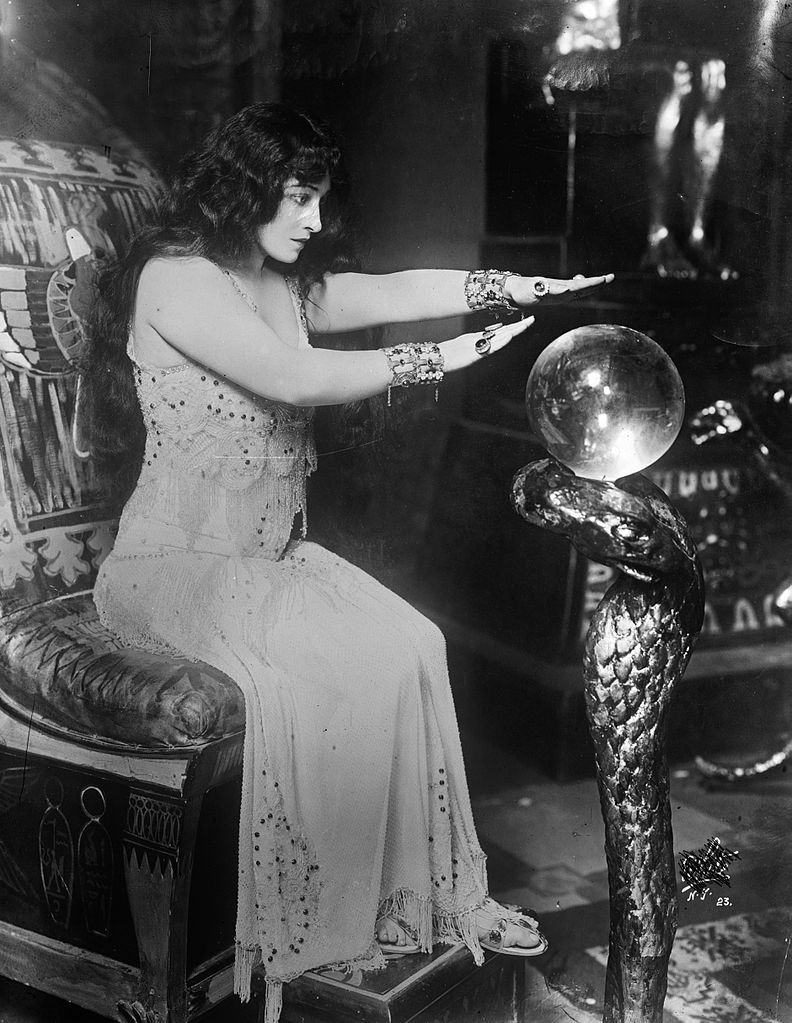
Considering how unpredictable the past few months have been, it seems almost unreasonable to even attempt to predict the 2017 Pulitzer Prize for Fiction. But, at a time when books — and all of our arts, really — are facing such scrutiny, shouldn’t we take every chance we get to talk about and celebrate those things that inspire us and, in so many ways, enrich our lives? I certainly think so.
At a time when books — and all of our arts, really — are facing such scrutiny, shouldn’t we take every chance we get to talk about and celebrate those things that inspire us and enrich our lives?
The Pulitzer Prize, which honors the year’s best fiction by an American writer that deals with some aspect of American life, is the Oscar of the literary world. It’s the rare literary occurrence that garners news attention; it’s the book award that results in real sells. Some Pulitzer winners are household names. William Faulkner, Harper Lee, Toni Morrison, Philip Roth, and Junot Diaz are all past winners. But, just like with the Oscars, there are occasional surprises that cause shock and delight. For example, few people (seriously, “few” is extremely generous) predicted in 2010 that Paul Harding would win the Pulitzer Prize for his novel Tinkers. It’s commonly known that Tinkers, published by the small Bellevue Literary Press, sold only around 40 copies the week before it won the Pulitzer. In the week following the announcement, Harding’s novel sold over one thousand copies. For every Tinkers-level surprise, there are also some decisions that aren’t so great. In 2012, the Pulitzer jury nominated David Foster Wallace’s The Pale King, Denis Johnson’s Train Dreams, and Karen Russell’s Swamplandia!, but the Pulitzer board couldn’t agree on a winner. So, we were left with nothing. Talk about a bummer.
I don’t think this year will be like 2012. There’s too much at stake. The Pulitzer Prize for Fiction seems especially crucial in 2017. Every novel and short story collection that I read felt important, and even more that that, these works of fiction felt urgent. Reading fiction teaches us empathy in ways that nothing else can, and, my friends, we NEED empathy now more than ever.
Reading fiction teaches us empathy in ways that nothing else can, and, my friends, we NEED empathy now more than ever.
In looking over some of the hundreds of worthy works that could be nominated, I’m amazed at the quality of work writers gave us over the past year. There were meticulously-constructed debuts, and there were epic tomes by some of today’s most established and respected authors. Comedies and speculative works received notice alongside family dramas and redemption tales. Most importantly, diversity came to the forefront of the conversation. It’s certainly true that we have a long way to go, but writers in 2016 told stories that couldn’t have been told before. These voices were simultaneously brave and bold. We can only hope that future Pulitzer contenders will enlighten us and inspire us just the same.
I want to take a moment to highlight some of the titles that might be close but will likely wind up just missing the cut for the 2017 Pulitzer Prize for Fiction. These books received a lot of buzz throughout the year, and they arrived with some really glowing reviews. They were the ones that touched on important and timely (and, in many cases, timeless) themes. These titles graced the shelves of bookstores all over the country, and booksellers were selling them with passion. These memorable works include: Ethan Canin’s A Doubter’s Almanac (Random House), Kaitlyn Greenidge’s We Love You, Charlie Freeman (Algonquin), Nathan Hill’s The Nix (Knopf), Eowyn Ivey’s To the Bright Edge of the World (Little, Brown and Company), Lee Martin’s Late One Night (Dzanc), C. E. Morgan’s The Sport of Kings (Farrar, Straus and Giroux), Annie Proulx’s Barkskins (Scribner), Patrick Ryan’s The Dream Life of Astronauts (The Dial Press), Amor Towles’ A Gentleman in Moscow (Viking), and Alexander Weinstein’s Children of the New World (Picador).
Any one of these books would be a perfectly fine finalist — and winner, for that matter, but there are ten additional books with a little more momentum at the moment. And, as with most things, momentum is tough to overcome.
Let’s get to it. In order, here are the ten most likely contenders for this year’s Pulitzer Prize for Fiction:
10. Jacqueline Woodson’s Another Brooklyn (Amistad)
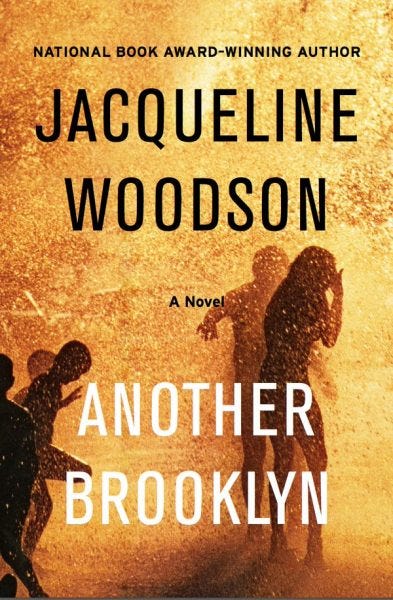
Sure, many readers think of Woodson as a children’s book author. And such a classification isn’t wrong. Her YA memoir in verse, Brown Girl Dreaming, won the National Book Award and was a Newberry Honor winner, too. Jacqueline Woodson isn’t only a children’s book writer; instead, she’s a great writer in general. Another Brooklyn is proof of her talent. It was recently selected as a finalist National Book Award, and reviews have been incredibly generous. If this year’s jury wants to put forth a taut novel about friendship and the struggles of growing up, Jacqueline Woodson could find herself with another award to add to her mantle.
9. Samantha Hunt’s Mr. Splitfoot (Houghton Mifflin Harcourt)
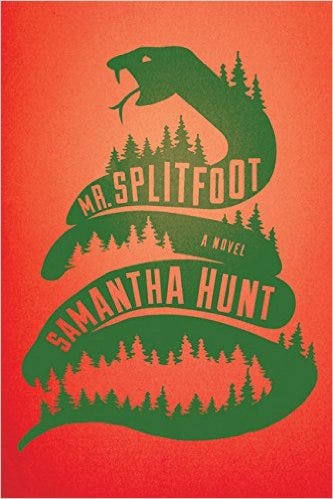
I’d love to see a speculative novel or short story collection (I’m thinking of Amber Sparks’ The Unfinished World) win a major literary award. Kelly Link was close last year, and Karen Russell, as I’ve already mentioned, was equally close in 2012. Samantha Hunt’s Mr. Splitfoot could be the book to do it. It’s true that Mr. Splitfoot hasn’t been on a ton of “best of” lists, but let’s not forget the stellar reviews at publication. This is a book that critics loved. It’s also the kind of book that you can’t easily forget. There are some absolutely terrifying scenes in Hunt’s novel, but there are just as many humorous moments. Mr. Splitfoot shows us what it means to be human and it asks us to consider the boundaries we place upon our families — and our fellow humans. Timely? I say so.
8. Michael Chabon’s Moonglow (Harper)
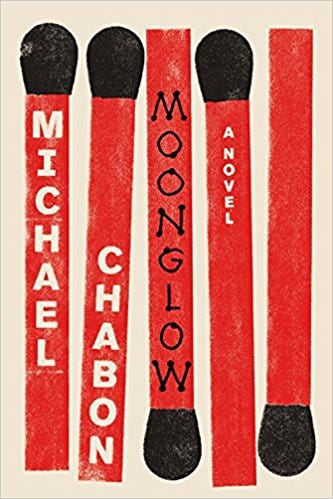
If Chabon had not already won the 2001 Pulitzer Prize for Fiction for what I consider to be The Great American Novel, The Amazing Adventures of Kavalier & Clay, he’d be higher on my list. But, hey, it could be his year again. Moonglow has received all kinds of accolades. One of the best predictors of the Pulitzer Prize is the National Book Critics Circle Award. Chabon was a finalist. Moonglow was also a finalist for the ALA Carnegie Medal, which is a big deal. Another thing working in Chabon’s favor is the emotional heft of his book. Moonglow is the kind of book that breaks your heart and then, somehow, makes you smile. It’s also classic Chabon, with sprawling sentences and crackling dialogue. If the jury connected with Moonglow as much as I did, it could definitely be a finalist.
7. Louise Erdrich’s LaRose (Harper)
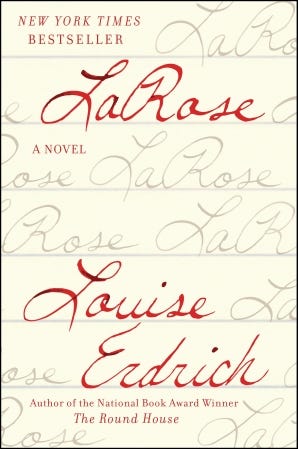
Erdrich is one of our country’s best writers. In my opinion, she should’ve won the Pulitzer for The Plague of Doves. Now could very well be her time. She just won the National Book Critics Circle Award in Fiction, and LaRose was a finalist for the 2017 PEN Faulkner Award. These two citations are good indicators that Erdrich might get that Pulitzer sooner rather than later. It also doesn’t hurt that LaRose is such a moving experience. If the board members are voting with their hearts, LaRose stands a strong chance.
6. Garth Greenwell’s What Belongs to You (Picador)
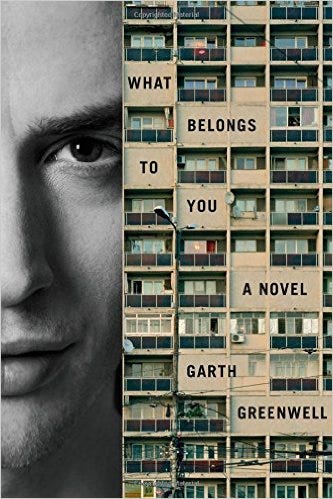
There’s no denying that What Belongs to You is one of the best books of the year. Greenwell captures sexual desire so authentically, and his characters are beautifully rendered. This is the kind of book where each sentence clicks. Every aspect feels both lyrical and consuming. Take a look at some of the novel’s honors: PEN Faulkner Award (finalist), National Book Award (longlist), Los Angeles Times Book Prize for Fiction (finalist), and the Center for Fiction First Novel Prize (shortlist). It’s among the most acclaimed books of the year for sure. The reason I don’t have it higher on the list is because of the setting, which revolves around Bulgaria. The past two Pulitzer Prize winners — Anthony Doerr’s All the Light We Cannot See and Viet Thang Nguyen’s The Sympathizer — have taken place abroad. Greenwell’s novel is such a strong contender that the setting might not be an issue, and if it’s not, What Belongs to You is one to keep an eye on.
5. Brad Watson’s Miss Jane (W. W. Norton & Company)
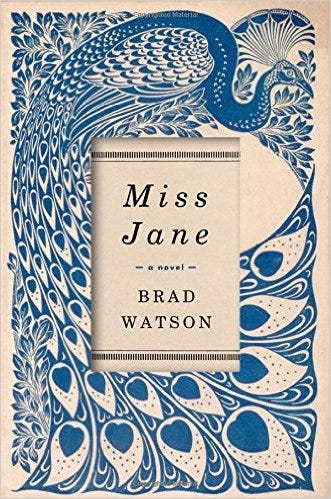
Sometimes you read a book and get a classic-feeling vibe from it. That’s how I felt about Miss Jane. This Mississippi-set story is relatively simple to follow: Miss Jane Chisolm, born with a genital birth defect, struggles to fit into a world that often doesn’t understand differences, especially sexual ones. Watson captures the southern voices that populate his novel so astonishingly well. It’s also such a timely book that asks its readers to consider the boundaries we place on gender. Miss Jane was longlisted for the National Book Award, and most everyone who reads it loves it. I see it as the most likely underdog.
4. Yaa Gyasi’s Homegoing (Knopf)
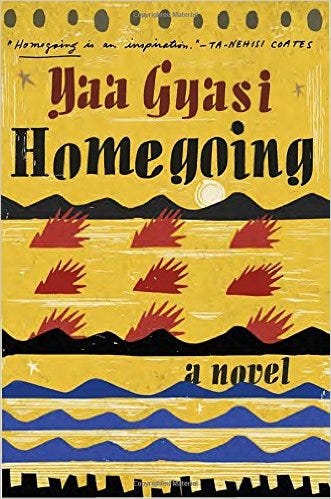
In a year that gave us a plethora of good debut novels, Homegoing is the best of the bunch. It won the National Book Critics Circle’s John Leonard First Book Prize, and it’s been on so many “best of” lists that it’d be impossible for me to list them all. Debut novels don’t have the best odds of winning the Pulitzer Prize, but this is one that’s totally worthy. Gyasi’s novel is a slim epic, and, yes, “epic” is fair. Homegoing begins in eighteenth-century Ghana, and it ends in the present day. There are discussions of slavery, family, home, and identity. The book feels important and, yeah, even essential. 2016 was wrong in so many ways. A Pulitzer win for Yaa Gyasi’s Homegoing would give us hope — and hope’s what we need right now.
3. Ann Patchett’s Commonwealth (Harper)
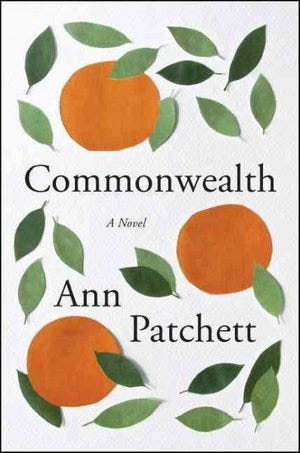
Ann Patchett, co-owner of Nashville’s beloved Parnassus Books, released her best novel in 2016. And that’s saying something. Patchett’s established an incredibly impressive resume over the years. Bel Canto, her most celebrated novel, won the Pen Faulkner Award and the Orange Prize. It was also a finalist for the National Book Critics Circle Award. Commonwealth has racked up its own slew of awards, including being selected as a finalist for this year’s National Book Critics Circle Award. I don’t know if likeability really impacts literary awards, but if it does, Patchett has an advantage. She comes across at her readings as being kind and inviting. She’s the kind of writer people root for. It feels like Patchett should already be a Pulitzer winner. Commonwealth, a lovely novel about family and love, is a worthy and likely contender.
2. Adam Haslett’s Imagine Me Gone (Little, Brown and Company)
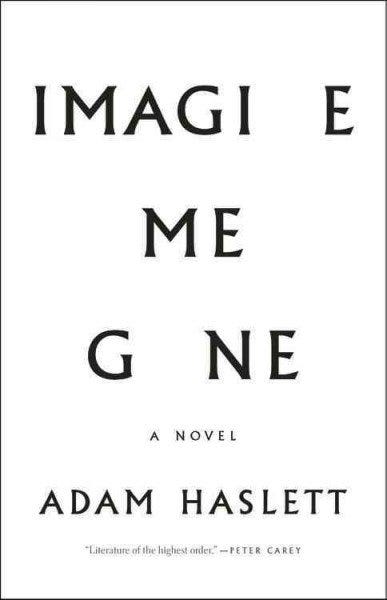
Adam Haslett’s short story collection, You Are Not a Stranger, which focuses largely on mental illness, was a massive critical success upon its publication. It was a finalist for the National Book Award and the Pulitzer Prize. Haslett’s latest novel, Imagine Me Gone, which also focuses largely on mental illness, is another critical success — maybe more so than You Are Not a Strange. This time, Haslett’s book was longlisted for the National Book Award, and it was a finalist for the National Book Critics Circle Award, the Los Angeles Times Book Prize, and the Kirkus Prize. Imagine Me Gone might very well be his masterpiece. In most years, I’d say Haslett would be the winner, but there’s this little book that might be tough to beat…
- Colson Whitehead’s The Underground Railroad (Doubleday)
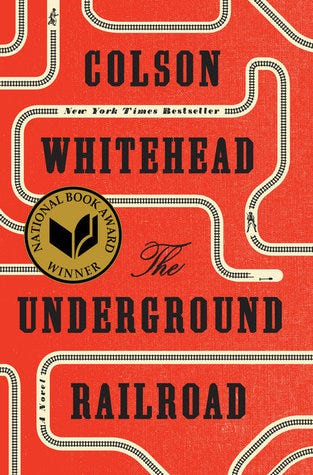
Colson Whitehead’s The Underground Railroad is the frontrunner. I hate to say it’s unbeatable because it doesn’t deserve a Titanic-like ending, but The Underground Railroad at least seems like it’s unbeatable. Seriously. Oprah gave Whitehead’s novel her seal of approval by selecting it as her latest book club pick several months back, and the book seems just as popular now as it was then. The New York Times, NPR, and the Washington Post gave the book absolute RAVES. It won the National Book Award (I don’t think it even matters that only six books that have won the NBA have gone on to win the Pulitzer — Faulkner’s A Fable, Porter’s The Collected Stories of Katherine Anne Porter, Malamud’s The Fixer, Updike’s Rabbit is Rich, Walker’s The Color Purple, and Proulx’s The Shipping News). Just last week, it won this year’s Tournament of Books. It’s appeared on what seems like every yearly “best of” list. Whitehead’s a dude who’s received a lot of past awards for his other novels, so he’s overdue for a Pulitzer. The Underground Railroad is so timely — so important and so urgent. Yes, The Underground Railroad is the story of a woman trying to escape slavery and all of its evil, but it’s also about rebuilding. It’s about strength. It’s about how evil exists, but it’s also about how we can overcome it. Colson Whitehead’s The Underground Railroad deserves the 2017 Pulitzer Prize for Fiction.
And there you have them. Adam Haslett’s Imagine Me Gone and Ann Patchett’s Commonwealth should be close, but Colson Whitehead’s The Underground Railroad is the frontrunner for the 2017 Pulitzer Prize for Fiction. Who knows, though? The announcement could come with some surprises. One thing is for sure: 2016 was a wonderful year for the written word.







